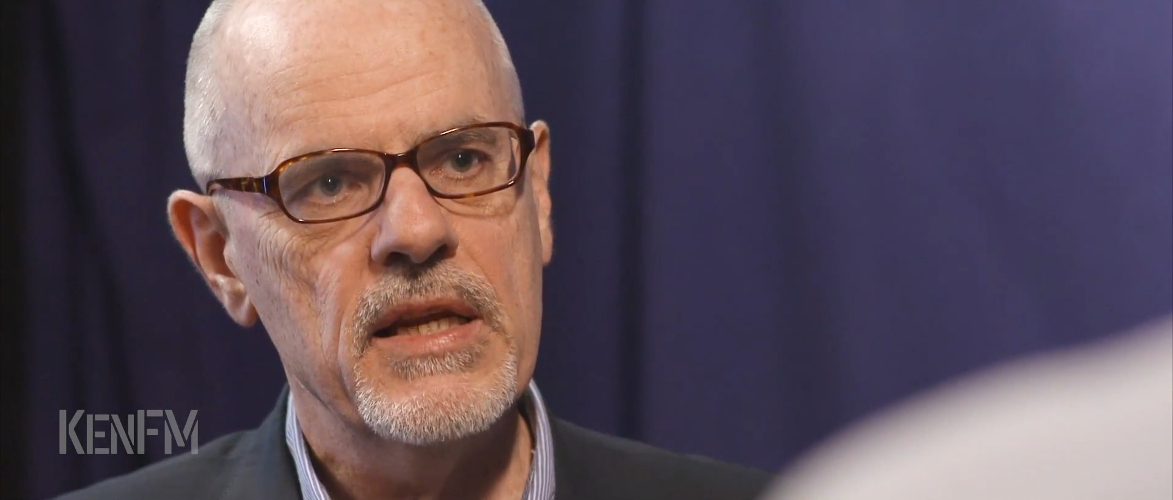By Norbert Häring.
The OECD and the EU want to change international tax principles to curb tax evasion. The USA opposes the plans, which would mainly affect its Internet companies.
The USA has stepped up its fight against taxes on digital companies. Shortly after President Donald Trump’s threat of special tariffs on French goods, US Treasury Secretary Steven Mnuchin called on all countries to abandon similar plans for levies, which would mainly affect US internet companies, at the beginning of the first week of December. In a letter to the industrialized nations organization OECD, Mnuchin stated that instead, an agreement should be sought at OECD level. At the same time, however, he warned against changes in taxation law. These could damage established pillars of the international tax system.
In doing so, the US is calling into question the OECD’s plan to limit the rampant tax avoidance by internationally operating corporations and the tax undercutting competition between states. To this end, the OECD wants to change the traditional principles of international tax distribution, if possible as early as 2020.
“The system of corporate taxation is outdated”
“The system of corporate taxation is outdated”, write Clemens Fuest, head of the economic research institute Ifo, Mathieu Parenti and Farid Toubal: “It allows multinational companies to exploit the complexity, loopholes and inconsistencies of international tax rules and to make their profits in low- or zero-tax countries”. The states are therefore forced to reduce taxes. According to a study by Thomas Torslov, Ludvig Wier and Gabriel Zucman, corporate tax rates were more than halved from 49 to 24 percent on a global average between 1985 and 2018.
Tax evasion by international corporations means not only a loss of revenue for the states but also an unfair competitive advantage over domestic medium-sized companies.
For some years now, international bodies have therefore been discussing how to reform the principles that allow multinationals to shift profits to low-tax countries. The most important of these is that independent international subsidiaries of multinationals, regardless of their parent company, should be taxed where they are active. An arm’s length comparison of intra-group transactions is intended to ensure that profits are not shifted via internal transfer prices to where the tax is lowest. However, this works poorly and is getting worse all the time, because there are no objective market prices for many payments, for example for licenses or naming rights. Moreover, the arrangements chosen are often very complex.
It works particularly badly for digital companies. For this reason, the EU Commission has proposed a digital tax for large companies in the Internet industry as an interim solution pending international agreement on new rules. France has closely followed the proposal with its special tax, which has been vehemently opposed by the USA. Other important countries such as Spain, Italy, Belgium, Turkey and India have also introduced special taxes on digital sales.
Dual-track OECD plan
The OECD’s reform agenda is two-pronged. For the routine business of corporations, the industrialized countries club wants to leave everything as it was. But so-called residual profits in a tax haven, which exceed a certain profit ratio, are to be partially taxed in the countries where the companies sell their goods. The second main component of the OECD proposal is a worldwide uniform minimum tax rate. This is to be enforced in such a way that the country of domicile of the group may co-tax the profits of foreign subsidiaries if these are taxed below the minimum tax rate. If the parent company itself is located in a tax haven with a too low tax rate, the countries of domicile of the subsidiaries may refuse tax deductibility if subsidiaries make payments to the parent company.
Fuest and his co-authors have analysed the effects of the OECD proposal for the French governmental advisory body Conseil d’analyse économique. They find that the first pillar of the OECD’s reform option, the redistribution of residual profits, has negligible tax redistribution effects. Only the second pillar, the global minimum tax rate, is significant. It would lead to a considerable decline in profit redistribution and to significantly higher tax revenues. The three authors therefore propose to drastically simplify the first pillar, which is administratively very costly in the current plan, and simply agree on a profit share to be redistributed according to turnover.
Mnuchin’s letter, in which he instead proposes a system of exemptions that is not known in detail, calls into question the plan of the OECD countries for an early reform. In a reply letter, OECD head Angel Gurria pointed out to Mnuchin that such a move had never been discussed during the previous lengthy consultations, including with the US. Now, he said, the proposal threatened to break the tight timeframe set by the 135 countries involved. Gurria invited Mnuchin “ideally before Christmas” to Paris for talks, in which the French Finance Minister Bruno Le Maire is also to participate. Le Maire rejected the US proposal on Friday, pointing out that the proposal would mean that US companies could choose how they wanted to be taxed.
The alternative plan of the EU
The EU Commission has drawn up an alternative reform plan for the EU. It proposes to calculate a group-wide profit and to divide the right of taxation for this “uniform basis of assessment” among the countries in which the companies are located. The distribution criteria are to include assets, sales and employment in the respective countries. The countries could then levy their tax rate on their share. Various researchers and commissions are also proposing this principle of a common tax base for a worldwide tax distribution.
The International Monetary Fund (IMF) has calculated what additional and reduced revenues the EU reform model would generate for the various types of countries. The IMF economists calculated that tax losses of tax havens could be as high as 80 percent if tax rates and corporate behaviour remained unchanged. Most other countries would benefit. However, the Fund’s experts warn that tax undercutting competition would remain intense and that new opportunities for manipulation would arise.
“Why should countries benefiting from the current system voluntarily accept new rules?”
There is, however, a more important crux of both reform proposals, which tax expert Lorenz Jarass from the University of Applied Sciences in Wiesbaden puts in a nutshell: “Why should the countries benefiting from the current system voluntarily accept new rules”, he asks, when this would reduce their tax share and also the number of highly paid tax avoidance jobs on their territory. The same can apply to the companies’ home countries, as the current US initiative shows. Jarass therefore sees a chance for great progress only if large countries such as Germany first of all steal part of the tax cake from the tax havens with nationally implementable measures. Then the tax havens and the beneficiary corporations would no longer have so much to lose in a cooperative solution. One of the measures that would be possible and effective in this direction would be a ban on deductions for payments that are not taxed appropriately in the target country. Individual countries are already implementing such measures. The digital tax is another such measure to put pressure on countries that refuse to accept new rules, in this case the USA.
+++
Thanks to the author for the right to publish.
+++
Picture source: Uladzik Kryhin /shutterstock
+++
This article appeared on 08 January 2020 on the blog of N.Häring: Geld und mehr
+++
KenFM strives for a broad spectrum of opinions. Opinion articles and guest contributions do not have to reflect the views of the editorial staff.
+++
You like our program? Information about support possibilities here: https://kenfm.de/support/kenfm-unterstuetzen/
+++
Now you can also support us with Bitcoins.

BitCoin address: 18FpEnH1Dh83GXXGpRNqSoW5TL1z1PZgZK










Kommentare (0)